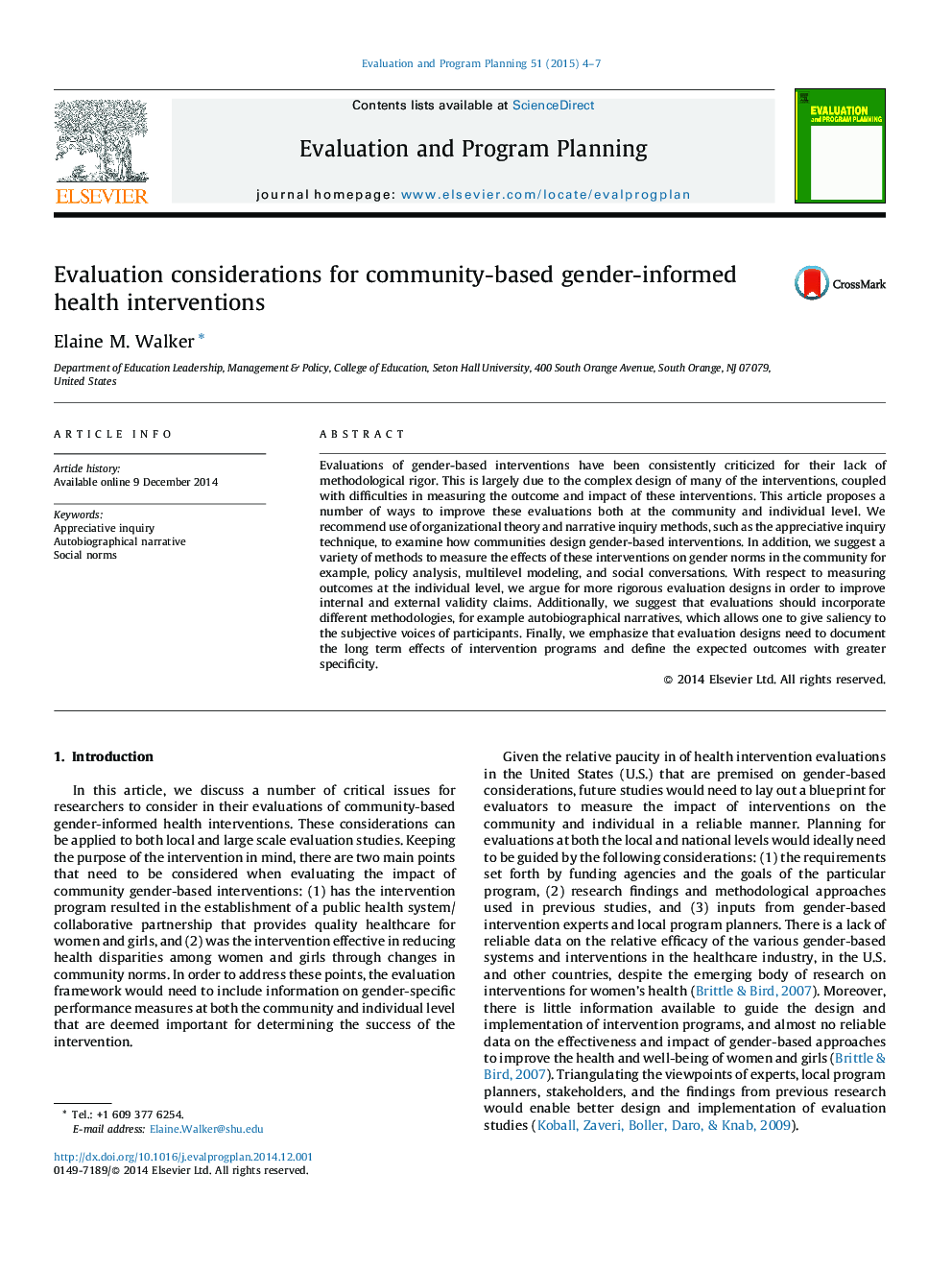| Article ID | Journal | Published Year | Pages | File Type |
|---|---|---|---|---|
| 322450 | Evaluation and Program Planning | 2015 | 4 Pages |
•The Appreciative Inquiry technique can complement traditional evaluation approaches.•Multiple approaches to measure changes in norms as a result of gender-based interventions are suggested.•Privileging subjectivity can clarify the impact of gender-based programs on individuals.
Evaluations of gender-based interventions have been consistently criticized for their lack of methodological rigor. This is largely due to the complex design of many of the interventions, coupled with difficulties in measuring the outcome and impact of these interventions. This article proposes a number of ways to improve these evaluations both at the community and individual level. We recommend use of organizational theory and narrative inquiry methods, such as the appreciative inquiry technique, to examine how communities design gender-based interventions. In addition, we suggest a variety of methods to measure the effects of these interventions on gender norms in the community for example, policy analysis, multilevel modeling, and social conversations. With respect to measuring outcomes at the individual level, we argue for more rigorous evaluation designs in order to improve internal and external validity claims. Additionally, we suggest that evaluations should incorporate different methodologies, for example autobiographical narratives, which allows one to give saliency to the subjective voices of participants. Finally, we emphasize that evaluation designs need to document the long term effects of intervention programs and define the expected outcomes with greater specificity.
